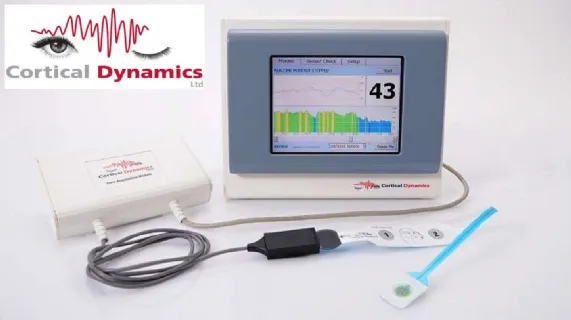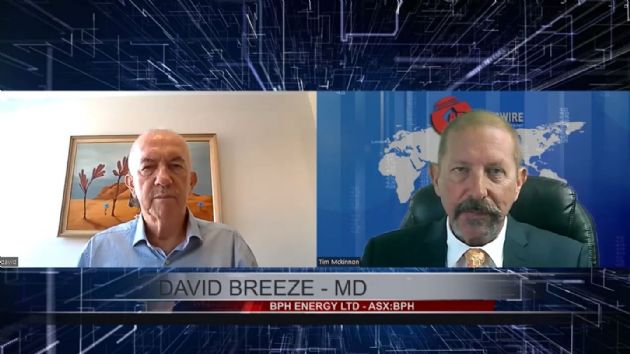
BPH Energy Limited (ASX:BPH) Announce Brain Anaesthesia Response System Study Results at Swinburne University
Perth, Sep 9, 2011 AEST (ABN Newswire) - Results of study of BAR System at Swinburne University Cortical Dynamics Ltd ("Cortical"), an investee company of BPH Energy Limited ( ASX:BPH), is pleased to announce the results of a recently completed study of the major components of the Brain Anaesthesia Response (BAR) monitoring system. The aim of the study was to verify the performance of the BAR system by evaluating the performance of all the signal gathering and analysing components. The study replicated and extended well known results regarding the effect of the hypnotic agent benzodiazepine alprazolam on brain electrical activity, electroencephalogram (EEG), in healthy subjects. This study was not designed to gain regulatory approval.
ASX:BPH), is pleased to announce the results of a recently completed study of the major components of the Brain Anaesthesia Response (BAR) monitoring system. The aim of the study was to verify the performance of the BAR system by evaluating the performance of all the signal gathering and analysing components. The study replicated and extended well known results regarding the effect of the hypnotic agent benzodiazepine alprazolam on brain electrical activity, electroencephalogram (EEG), in healthy subjects. This study was not designed to gain regulatory approval.
Study
Ten healthy participants between the ages of 18 and 40 ingested a single 1mg oral dose of alprazolam after a baseline EEG recording was taken. The EEG was recorded and analysed by employing two of the three components of the complete BAR system, the Data Acquisition Module (DAM) which amplifies and analyses the EEG and, Cortical's adhesive scalp electrodes. The participant's EEG was subsequently recorded every hour for a period of three hours.
Study Conclusion
The study demonstrated that the major components of the BAR system were capable of robustly replicating the well known pharmaco-EEG phenomena of benzodiazepine agents, the benzodiazepine-induced "beta buzz". The replication of this well documented phenomenon indicates that the BAR's hardware and software components are functioning correctly. Additionally this study concluded that the physiologically inspired approach of the BAR monitoring system, which is it's differentiating feature, was as anticipated capable of detecting the effects of the well known hypnotic agent alprazolam.
Cortical plans to further evaluate the CS and CI indices using the complete BAR monitoring system in a range of upcoming clinical trials.
This study provides the necessary verification of the major components of the BAR system for it to be used in planned clinical studies.
About the BAR Monitor
The BAR monitoring system measures a patient's brain electrical activity or EEG to indicate how deeply anaesthetised a patient is during an operation via an adhesive sensor applied to the forehead. The BAR system is designed to assist anaesthetists and intensive care staff in ensuring patients do not wake up un-expectedly, as well as reducing the incidence of side effects associated with the anaesthetic procedure.
The BAR system improves on currently used EEG monitors by utilising advances in our understanding of how the brain's electrical activity is produced, and how it is affected by anaesthetic and sedative drugs. The BAR's unique physiological approach is aimed at independently monitoring the hypnotic and analgesic states, a feature no known EEG based anaesthesia monitors are able to achieve. Objectively monitoring of hypnotic and analgesic state is expected to lead to improved anaesthetic and surgical outcomes, by reducing recovery times and minimising drug costs.
About Cortical Dynamics
Cortical Dynamics is a medical technology company that was established in 2004 to commercialise intellectual property relating to brain function monitoring developed by Associate Professor David Liley and his scientific team at Melbourne's Swinburne University of Technology.
Cortical, has applied for admission to the Official List of the Australian Securities Exchange and the offer closing date has been extended to 5:00pm (AWST) on Monday 26 September 2011.
About BPH Energy Limited
 BPH Energy Limited (ASX:BPH) is an Australian Securities Exchange listed company developing biomedical research and technologies within Australian Universities and Hospital Institutes.
BPH Energy Limited (ASX:BPH) is an Australian Securities Exchange listed company developing biomedical research and technologies within Australian Universities and Hospital Institutes.
The company provides early stage funding, project management and commercialisation strategies for a direct collaboration, a spin out company or to secure a license.
BPH provides funding for commercial strategies for proof of concept, research and product development, whilst the institutional partner provides infrastructure and the core scientific expertise.
BPH currently partners with several academic institutions including The Harry Perkins Institute for Medical Research and Swinburne University of Technology (SUT).
| ||
|






